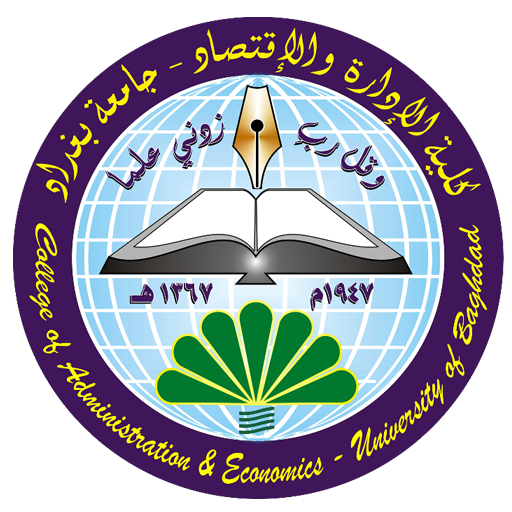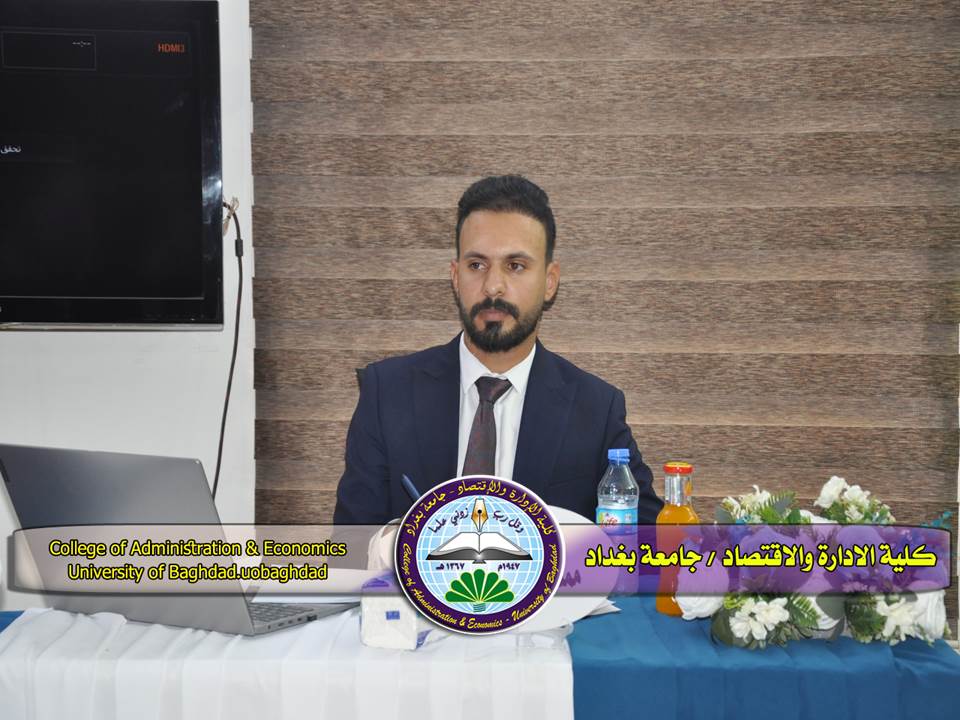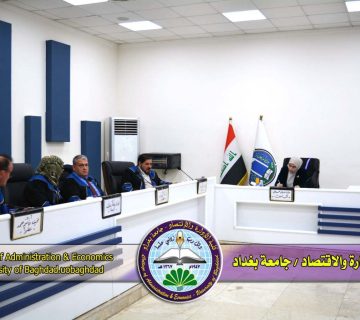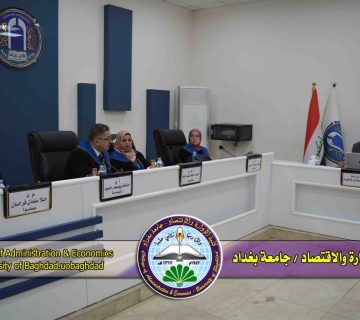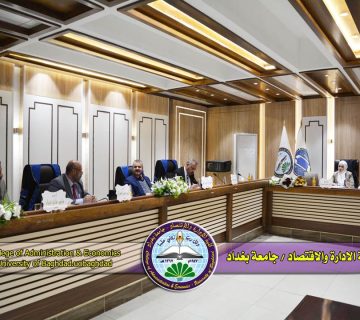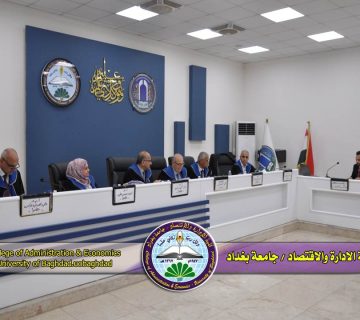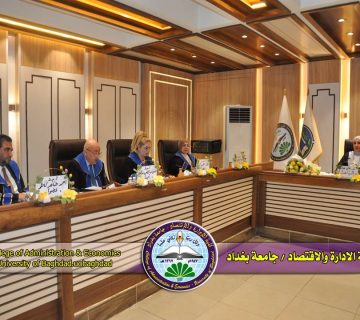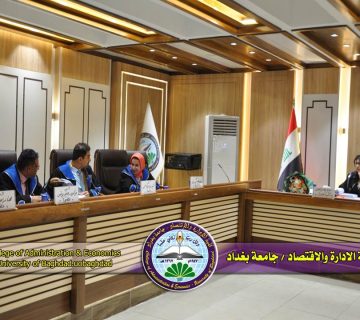The College of Administration and Economics at the University of Baghdad discussed , a master’s thesis in field of Economic by the student ( Mamdooh Ayad Ali ) and tagged with (The role of public spending policies in promoting economic reform ) , Under supervision of ( Prof.Dr. Ghofran Hatem Alwan )
The research aims to show the role of public spending policies in promoting economic reform in Iraq for the period (2004-2021), and this can be known by analyzing the trends of public spending in Iraq and knowing the effects of those expenditures on the indicators of economic reform in the Iraqi economy. The research assumes that there is a positive role for public spending policies in promoting economic reform. The inductive approach was followed by relying on the analytical descriptive method to confirm the hypothesis of the research or its denial. The standard quantitative method was also used to estimate and analyze the relationship between the indicators of public spending policies (financial discipline, public expenditure productivity) as independent variables and between economic reform indicators (GDP, unemployment, inflation, trade balance, public debt) as variables related to the based on the distributed slowdown self-regression model (ARDL) in order to indicate the direction and type of the relationship between the variables used.
The research found that there is an efficient indirection of public expenditures, which led to the waste of financial wealth and the lack of benefit from the surpluses achieved in the general budget during the period of the research, as well as Iraq’s continued dependence on oil revenues to finance its expenses, which led to continued exposure to external shocks, as well as the continued dominance of current spending on investment spending. The research also found that the Iraqi economy suffers from structural imbalances represented by a decrease in the contribution of economic sectors (non-oil) to the generation of gross domestic product, high unemployment and inflation, as well as Iraq’s dependence on oil exports, and the increase in the total public debt (internal and external).
The standard quantitative method concluded that there is a positive role to use public spending policies in promoting economic reform in Iraq during the research period (2004-2021), that is, this is identical to the research hypothesis that there is a positive role to use public spending policies in promoting economic reform in Iraq.

